We are an international team, working in Australia, Europe and elsewhere
Contact us by email.
Dedication to Kim Frances Dunphy
Kim Frances Dunphy, OAM, in memoriam.
We at Making Dance Matter would like to dedicate the continued development of MARA to our esteemed colleague and friend, Kim Frances Dunphy (1960-2020).
Kim’s legacy is grounded in her belief in the positive and evidenced use of the arts, specifically dance, to activate personal change in the physical, emotional, social, cultural, and communicating aspects of human life. This was her life’s focus, borne out in her multiple research and publication endeavours, as well as in her professional advocacy and mentoring that was shared with colleagues around the world. Her determination to ensure that dance movement therapists are resourced to complete an efficient and evidence-based assessment of their work with clients continues to inspire us and, we hope, generations of creative arts therapists to follow.
Project Founder
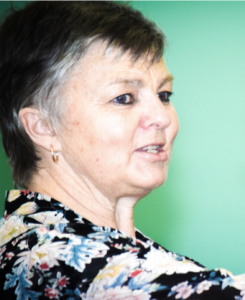
Kim Dunphy (B.A, Grad Dip Movement Dance, M.Ed, PhD, DTAA Prof. DMT, OAM) is a Senior Lecturer in the Creative Arts and Music Therapies Research Unit at the University of Melbourne, Australia, where her research and practice interests focus on understanding the nature of change through the arts, in therapy and broader contexts.
Kim initiated the project that became MARA with colleague Sue Mullane in 2010, as they both tackled the issue of how a DMT practitioner could feasibly assess groups of participants using an instrument that was meaningful to the DM therapist and also stakeholders in practice contexts who often understand little about DMT. Kim has focussed her research and development work in the decade since on the development of the tools, iPad app MARA and its underpinning Outcomes Framework. This included three years as a Mackenzie Post-Doctoral Research Fellow, the University of Melbourne’s most prestigious Post-Doctoral Award.
Her publications focussed on planning, assessment and related topics include chapters on exploring use of MARA to establish group objectives for psycho-motor interventions (Lebre, P., Dunphy, K., & Juma, S. (2020). Body, Movement, Dance and Psychotherapy https://doi.org/10.1080/17432979.2020.1806926); Developing client capacity for self-assessment in dance movement therapy, (Hens, T., & Dunphy, K. 2020, Journal of Disability and Society); Planning a dance movement therapy program for clients with intellectual disability: considering NDIS, host agency and DMT priorities (Hens, T. & Dunphy, K. (2020). Moving On, (1) 2-17. https://dtaa.org.au/journal): Outcome-focussed dance movement therapy assessment enhanced by iPad app MARA. (Dunphy, K. & Hens, T. (2018). Frontiers in Psychology. 9, https://www.frontiersin.org/articles/10.3389/fpsyg.2018.02067/full); Developing an iPad app for assessment in dance movement therapy (Dunphy, K., Mullane, S., & Allen, L. (2016). The Arts in Psychotherapy, 51, 54-62. http://dx.doi.org/10.1016/j.aip.2016.09.001).
Kim’s other publications on DMT include Freedom to Move: Movement and Dance for People with Intellectual Disabilities (with Jenny Scott, Elsevier 2003); chapters in books including the Handbook of Dance and the Quality of Life (Springer, 2018), Oxford Handbook of Dance and Wellbeing (OUP, 2017), Counselling and Psychotherapy Works: Contributions from the Field (PACFA, 2015), Dance Therapy Collections 1-4 (DTAA, 1997-2017), and journals The Arts in Psychotherapy and American Journal of Dance Therapy. Kim was the President of the Dance Movement Therapy Association of Australasia, 2015-2019; Chair of the Research Committee, Psychotherapy and Counselling Federation of Australia 2017-2019; Inaugural Convenor of the Steering Group of the World Alliance for Dance Movement Therapy 2016-2019; and an Honorary Life Member of Ausdance Victoria and PACFA (the Psychotherapy and Counselling Federation of Australia). Kim has worked as a dance movement therapist and educator in a range of settings, including community groups, schools, hospitals and disability services. She has lectured in dance education at Deakin and Melbourne Universities and dance movement therapy at RMIT University and Phoenix Institute. She was awarded an Order of Australia medal for services to the community through DMT in 2020.
Current Project Leaders and Trainers
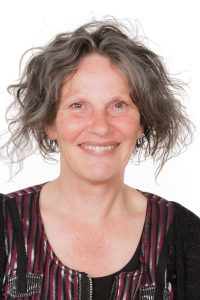 Sue Mullane, dance movement therapist and special education teacher, Melbourne, Australia, was the first project partner in the development of MARA, drawing on the challenges of her practice context in special education. Her role on the MARA project now includes training in assessment for users and leading the development of a participant version of the MARA app, to enable DMT participants to reflect on and document their own progress and be supported to progress between therapy sessions. Sue currently teaches DMT at Deakin and Melbourne Universities and previously at Phoenix Institute, Melbourne, Australia.
Sue Mullane, dance movement therapist and special education teacher, Melbourne, Australia, was the first project partner in the development of MARA, drawing on the challenges of her practice context in special education. Her role on the MARA project now includes training in assessment for users and leading the development of a participant version of the MARA app, to enable DMT participants to reflect on and document their own progress and be supported to progress between therapy sessions. Sue currently teaches DMT at Deakin and Melbourne Universities and previously at Phoenix Institute, Melbourne, Australia.
Her publications include Mullane, S. & Dunphy, K. (2017). Dance movement therapy and student learning and well-being in special education. In V. Karkou, S. Oliver & S. Lycouris (Eds.), The handbook of dance and wellbeing. Chapter 27, pp. 493-516. Oxford University Press; Dunphy, K., Mullane, S., & Allen, L. (2016). Developing an iPad app for assessment in dance movement therapy, The Arts in Psychotherapy, 51, 54-62. http://dx.doi.org/10.1016/j.aip.2016.09.001; Dunphy, K., Mullane, S. & Guthrie, J. (2015). Dance movement therapy as a specialized form of counselling and psychotherapy in Australia: the emergence of theory and practice. In C. Noble & E. Day. (Eds.) Psychotherapy and counselling: Reflections on practice. (pp. 173-189). Oxford University Press; Dunphy, K., Mullane, S. & Jacobsson, M. (2014). Effectiveness of creative arts therapies: a literature review. Psychotherapy and Counselling Journal of Australia, 2(1). http://pacja.org.au/?p=1439.
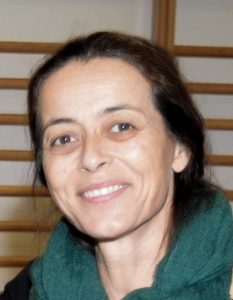
Dr. Paula Lebre (Phd Human Kinetics, Rehabilitation), Auxiliary Professor at Faculty of Human Kinetics, Lisbon University, Portugal, Researcher at Inet-Md-Polo Dança. Paula has been involved in the MARA project since 2018, when she trialled MARA in her practice context of local government community dance programs in Almada, Portugal. Paula’s contribution to the MARA project since then includes the development of the Framework and MARA for application in a group program for participants with disabilities, development of the Excel tool for use of the Framework without an iPad, translation of instruments into Portuguese and use of the Framework to establish group objectives for psychomotor interventions and develop a group profile (2018-ongoing). This latter project was undertaken with Soraia Juma, psychomotor therapist and Emilia Prudêncio of the Dança & Gira Project at Almada City Council, and documented in Lebre, P., Dunphy, K., & Juma, S. (2020). Exploring use of MARA (Movement Assessment and Reporting App) to establish group objectives for psychomotor intervention. Body, Movement, Dance and Psychotherapy https://doi.org/10.1080/17432979.2020.1806926).
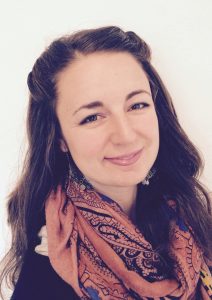 Tessa Hens, dance movement therapist, Bayley House, Victoria, Australia and University of Melbourne, MSEI Community Fellow, has been involved in trials of MARA with clients with intellectual disability in day programsettings. Documented in Dunphy, K. & Hens, T. (2018). Outcome-focussed dance movement therapy assessment enhanced by iPad app MARA. Frontiers in Psychology. 9:2067. She led considerations of planning for DMT sessions to be funded by NDIS, utilising MARA for assessment, documented in Hens, T. & Dunphy, K. (2020). Planning a dance movement therapy program for clients with intellectual disability: considering NDIS, host agency and DMT priorities. Moving On, 17(1) 2-17. Tessa also catalysed the first exploration of client perspective in assessment using MARA documented in this article: Hens, T., & Dunphy, K. (under review). Developing client capacity for self-assessment in dance movement therapy. 2016-ongoing.
Tessa Hens, dance movement therapist, Bayley House, Victoria, Australia and University of Melbourne, MSEI Community Fellow, has been involved in trials of MARA with clients with intellectual disability in day programsettings. Documented in Dunphy, K. & Hens, T. (2018). Outcome-focussed dance movement therapy assessment enhanced by iPad app MARA. Frontiers in Psychology. 9:2067. She led considerations of planning for DMT sessions to be funded by NDIS, utilising MARA for assessment, documented in Hens, T. & Dunphy, K. (2020). Planning a dance movement therapy program for clients with intellectual disability: considering NDIS, host agency and DMT priorities. Moving On, 17(1) 2-17. Tessa also catalysed the first exploration of client perspective in assessment using MARA documented in this article: Hens, T., & Dunphy, K. (under review). Developing client capacity for self-assessment in dance movement therapy. 2016-ongoing.
 Simea Schoenenberger-Howie, from SRH University Heidelberg, Germany, has completed her Masters research project exploring the application of MARA with music and other creative arts therapists the article is available online: Schoenenberger-Howie, S., Dunphy, K. F., Lebre, P., Schnettger, C., Hillecke, T., & Koch, S.C. (2022). The Movement Assessment and Reporting App (MARA) for Music Therapy. GMS Journal of Arts Therapies, 4, Doc03. doi: 10.3205/jat000018. She is also trained both as a music and dance movement therapist, with diverse experience in settings including neonatal, and perinatal, with children, teenagers in an inpatient setting, with adults in forensic low security, rehabilitation, acute and with older adults, participants with brain injuries and disabilities, mental health issues, participants with addictions, older adults and with Parkinson’s.
Simea Schoenenberger-Howie, from SRH University Heidelberg, Germany, has completed her Masters research project exploring the application of MARA with music and other creative arts therapists the article is available online: Schoenenberger-Howie, S., Dunphy, K. F., Lebre, P., Schnettger, C., Hillecke, T., & Koch, S.C. (2022). The Movement Assessment and Reporting App (MARA) for Music Therapy. GMS Journal of Arts Therapies, 4, Doc03. doi: 10.3205/jat000018. She is also trained both as a music and dance movement therapist, with diverse experience in settings including neonatal, and perinatal, with children, teenagers in an inpatient setting, with adults in forensic low security, rehabilitation, acute and with older adults, participants with brain injuries and disabilities, mental health issues, participants with addictions, older adults and with Parkinson’s.
other COLLABORATORS and contributors to THE OUTCOMES FRAMEWORK AND MARA PROJECTS
Many expert professionals are contributing to the development of the Outcomes Framework and MARA over its long gestation.
Ongoing trials and development
 Professor Sabine Koch, Director of RIArT, Professor for Empirical Research in the Arts Therapies, RIArT (Research Institut for Creative Arts Therapies), Alanus University of Arts and Social Sciences, Alfter/Bonn, Germany, is working on the validity and reliability of Framework elements, client perspective in assessment and technological developments of MARA, 2019-ongoing, through a DAAD grant for German-Australian research collaboration. Other collaborators on this project include Josephine Geipel, SRH Heidelberg, Lily Martin and Simea Schoenenberger, SRH Heidelberg, and Ella Dumaresq, University of Melbourne.
Professor Sabine Koch, Director of RIArT, Professor for Empirical Research in the Arts Therapies, RIArT (Research Institut for Creative Arts Therapies), Alanus University of Arts and Social Sciences, Alfter/Bonn, Germany, is working on the validity and reliability of Framework elements, client perspective in assessment and technological developments of MARA, 2019-ongoing, through a DAAD grant for German-Australian research collaboration. Other collaborators on this project include Josephine Geipel, SRH Heidelberg, Lily Martin and Simea Schoenenberger, SRH Heidelberg, and Ella Dumaresq, University of Melbourne.
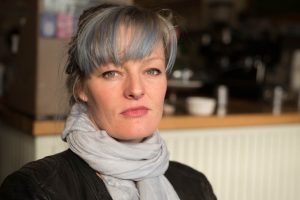
Natalie Poole, dance movement therapist, Melbourne, Australia, is working on development of the theory of the Outcomes Framework, supported by DAAD grant (Australia-Germany Research Co-operation Scheme). Natalie has worked in various institutions including schools, universities, detention centres, hospitals, and clinical settings. She is currently researching the potential of an online dance movement therapy course for people experiencing anxiety and depression, using 5Rhythms dance as the movement focus.

Ana Teresa Carneiro Barbosa Caridade, Master of Artistic Education, Instituto Politécnico Viana do Castelo, Portugal. Project title: MOSAIC – Trialling of the Outcomes Framework and MARA in inclusive dance settings: Contributing to the content validation of the Portuguese version of Outcomes Framework. Aim: Under a mosaic framework describing the Portuguese Version of the Outcomes framework, stories inspired in the Book “Mara Melody” will be created, and piloted as a directed approach for assessment of participants in inclusive dance and setting a Group profile. Further to this research it is expected that MARA will be used in community inclusive dance settings, testing MARA Portuguese Version validity in the following ongoing projects promoted by MOSAIC association: (In)Pulsar – inclusive dance in the community; Escola Palco Virtual – Portugal – virtual inclusive dance in the community; Patchwork– inclusive with Cerci Braga and community. September 2019- September 2020.
 Carla Sónia das Neves Caeiro Godinho. Trialling of the Outcomes Framework and MARA in psychomotor therapy: The applicability of Portuguese version of MARA. This project aims to assess the applicability of MARA in psychomotricity sessions with dance mediations contributing for the validation of the Portuguese version (inter-rater reliability and intra-rater agreement of scores) in adults with intellectual difficulties and women with breast cancer and setting a Group profile. October 2020- July 2021.
Carla Sónia das Neves Caeiro Godinho. Trialling of the Outcomes Framework and MARA in psychomotor therapy: The applicability of Portuguese version of MARA. This project aims to assess the applicability of MARA in psychomotricity sessions with dance mediations contributing for the validation of the Portuguese version (inter-rater reliability and intra-rater agreement of scores) in adults with intellectual difficulties and women with breast cancer and setting a Group profile. October 2020- July 2021.
 Dr. Steve Harvey, PhD, RPT/S, BC-DMT, RDT, Guam/New Zealand, is a clinical and educational psychologist and creative arts therapist and is licensed in both the United Sates and New Zealand. He is also registered by the American Dance Therapy, Play Therapy, and Drama Therapy Associations. He has extensive experience working with children and pioneered the application of play and creative arts therapy approaches in work with families. He has worked as a Consultant Psychologist in the public mental system in New Zealand where he completed ongoing action/applied research with service wide outcomes using regular client mental health related ratings in both the adult and child and adolescent mental services often presenting at national outcome forums. These results lead to performance improvement changes. He has also led projects to investigate client/family change that compared arts based inquiry methods with traditional outcome ratings. Current he is very interested in using the MARA ratings in an applied clinical settings and particularly integrating findings with mental health measurements.
Dr. Steve Harvey, PhD, RPT/S, BC-DMT, RDT, Guam/New Zealand, is a clinical and educational psychologist and creative arts therapist and is licensed in both the United Sates and New Zealand. He is also registered by the American Dance Therapy, Play Therapy, and Drama Therapy Associations. He has extensive experience working with children and pioneered the application of play and creative arts therapy approaches in work with families. He has worked as a Consultant Psychologist in the public mental system in New Zealand where he completed ongoing action/applied research with service wide outcomes using regular client mental health related ratings in both the adult and child and adolescent mental services often presenting at national outcome forums. These results lead to performance improvement changes. He has also led projects to investigate client/family change that compared arts based inquiry methods with traditional outcome ratings. Current he is very interested in using the MARA ratings in an applied clinical settings and particularly integrating findings with mental health measurements.
Dance movement therapy practitioners and researchers across the world who have responded to requests to participate in research. These include JungHsu Wan, New Zealand; Connor Kelly, Guam; Cecelia Fontanesi, Italy, USA; Ming Jung Shim, USA, Korea; Laura Allen, Pattee Russell Curry, USA; Alida Esmail, Canada.
early development and trial phases
Laura Allen, Columbia College, Chicago, was involved in trials of an early version of MARA (called Marking the Moves) in clinical settings, with Columbia DMT students Patrick Justin and Hannah Bailey, and supported by Professor Susan Imus, between 2014-2015. Documented in Dunphy, K., Mullane, S., & Allen, L. (2016). Developing an iPad app for assessment in dance movement therapy, The Arts in Psychotherapy, 51, 54-62. http://dx.doi.org/10.1016/j.aip.2016.09.001.
Jenny Scott, former dance movement therapist, Melbourne Australia, co-developing the first assessment tool published in Freedom to Move (Dunphy & Scott, 2003) that inspired the Framework. Dunphy, K. & Scott, J. (2003). Freedom to Move: Movement and Dance for People with Intellectual Disabilities, Sydney: Elsevier.
Technology and web support
Developers: Arnis Gross, of fmCustomApps
Webmaster Kitka Hiltula

